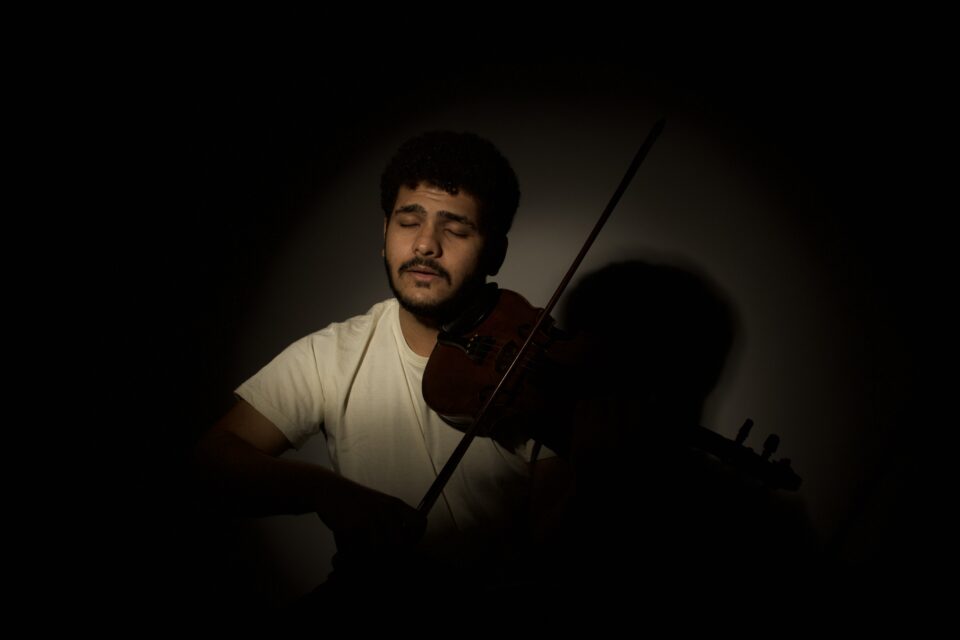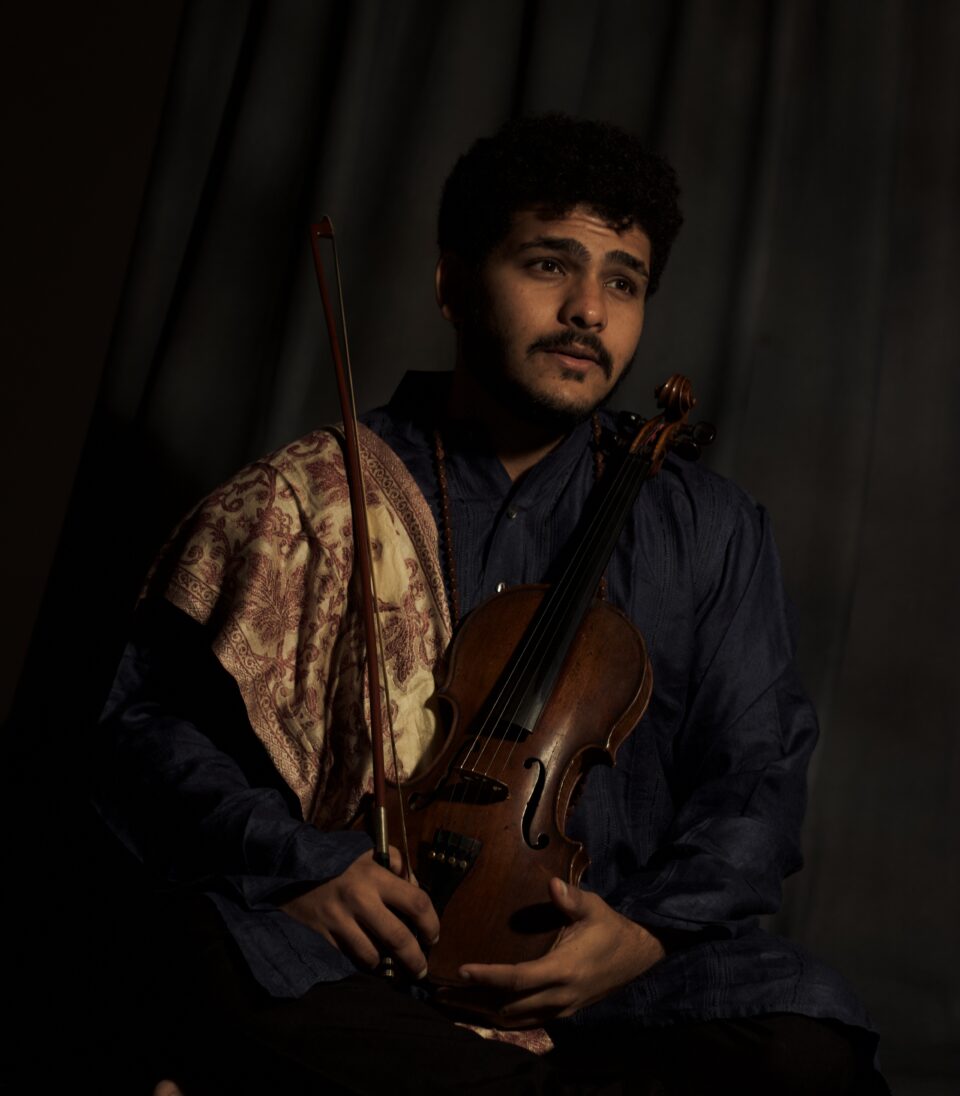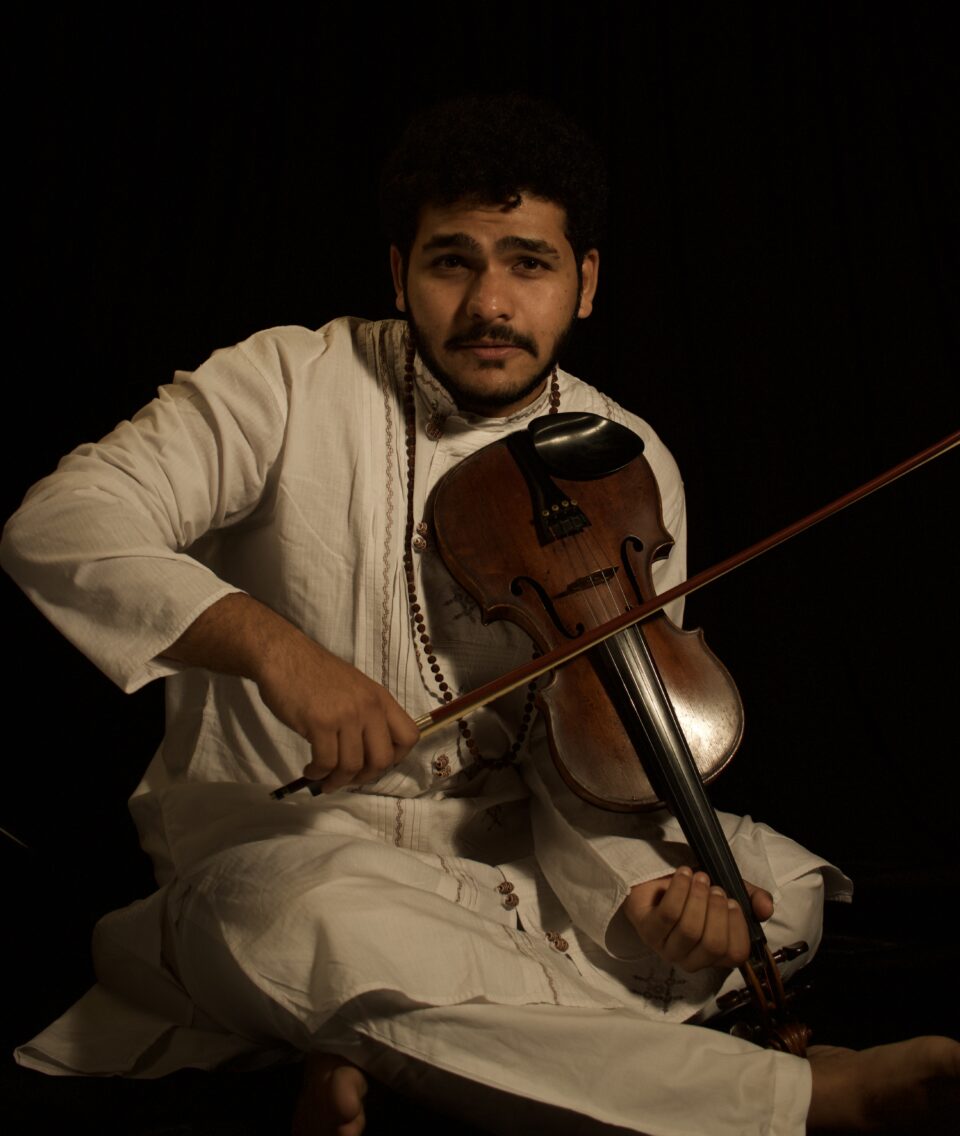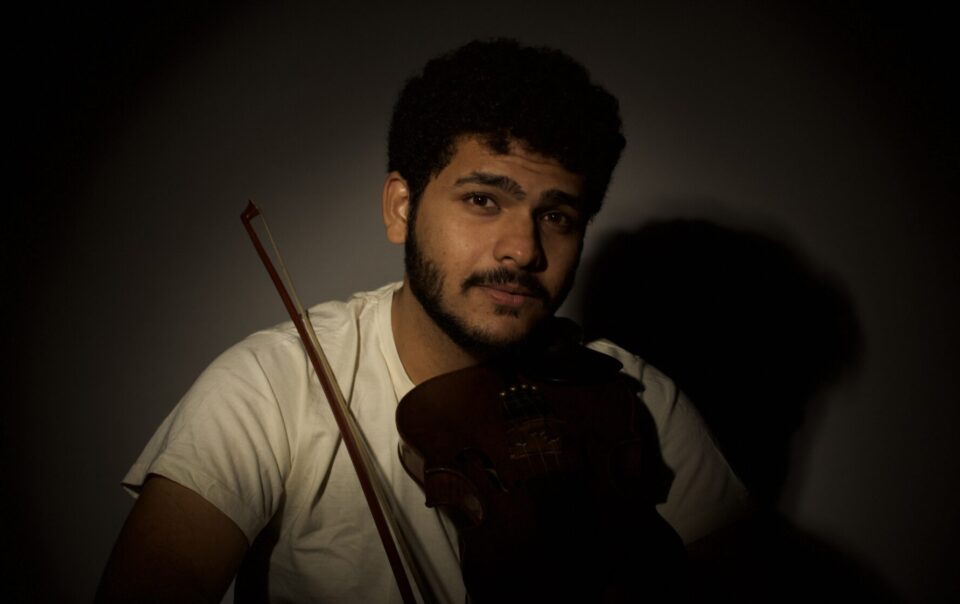
Yadnesh Raikar
Violin prodigy revels in complexities, concertos and character
Success can be achieved at a young age. Shri Yadnesh Raikar, who accepts the prefixed title to honor and respect those who have been granted immense accolades in the field of classical music, started playing and performing at the age of four. Having been the son and disciple of renowned Violinist Swarpradnya Pandit Milind Raikar, greatness was expected. Rolling Stone India spoke with Yadnesh Raikar to explore how he chooses to navigate the very same greatness.
Rolling Stone India: What inspired you to start learning the violin at such a young age?
Music has always been an integral part of my life, I grew up around it. I grew up listening to my father, Pandit Milind Raikar who is a renowned musician himself. Being around him, his contemporaries and listening to other legendary musicians like Ustad Amir Khan, Pandit Jasraj, Vidhushi Kishori Amonkar, Pandit Nikhil Banerjee, I started getting inclined towards music as a kid. I started learning tabla when I was a year and half old and leaned towards playing violin when I was 2 and half years old. My parents often told me about a few incidents where I precisely gave them signs of ideal musicians with inclination towards music and rhythm.
How has your musical journey evolved since your first performance at the age of 4?
My upbringing has been truly remarkable, filled with wonderful experiences. Being recognized as a child prodigy meant that many people listened to me and had high expectations. My journey began with my first concert at the age of 4, and back then, I approached the stage without fear. However, as I grew older and started performing more professionally, my perspective on concerts shifted. I now see them as a responsibility, a duty to the world to share my music on a larger scale.

Can you share the influence your father, Pt. Milind Raikar, has had on your music?
It’s refreshing that you mentioned music in general, not just classical music. During a brief period when I solely focused on Indian classical music, my father, my mentor helped me broaden my musical horizons. He introduced me to various genres such as jazz, Bollywood, Western, and cross-cultural music, allowing me to explore different aspects of music. He is a true musician who expanded the scope of my musical journey. His influence extends beyond classical music and has had a profound impact on both my musical and personal life. I consider myself incredibly fortunate and blessed to have had him as my mentor.
What are the challenges and rewards of being a child prodigy in classical music?
Being a child prodigy in classical music presents a unique set of challenges and rewards. While it’s undoubtedly a privilege to be recognized and admired at such a young age, it also comes with immense pressure and expectations. The constant spotlight can easily inflate one’s ego, but I’m grateful to my parents for instilling in me the sanskar (culture) of humility, which has been invaluable in navigating this journey.
The expectations placed upon me require constant diligence in practice, honing of my skills, and a commitment to proving myself repeatedly. The music industry demands that one not only possess talent but also continuously evolve as an artist.
There’s also constant comparison, not only with peers but often with revered figures like one’s own Guru, which can be daunting. Yet, amidst these challenges, there’s a lot of joy in the experiences and opportunities that come with being part of the music industry at such a young age. I feel privileged to have been in this stage of life where I get to inspire people. Apart from all the challenges, life experiences, early exposure, the countless love and blessings that I have been showered with have motivated me a lot. That’s one big reward I carry with myself.
Ultimately, it’s all trial and triumph, but the rewards of touching lives and leaving a lasting impact make it all worthwhile.

How do you balance tradition with innovation in your violin performances?
I learnt from strict traditionalists such as Pandit Milind Raikar and Pandit Arun Kashalkar. I was also blessed to be mentored by Padmavibhushan Kishori Amonkar and Dr. L Subramaniam who have been innovators in their era. Under the tutelage of diverse Gurus, I’ve developed a unique approach to Indian classical music. This blend of tradition and innovation has shaped my vision as I strive to introduce Indian classical music to a wider, younger audience in the mainstream media.
I’ve always sought ways to make Indian classical music more engaging for today’s listeners without compromising its core values. By enhancing its aesthetic appeal and introducing elements like multiple percussion arrangements, jugalbandis, sawal-jawab sessions, and unique raga interpretations, I aim to draw the audience closer to the music’s essence. Interactive sessions that invite listeners to experience the depth of aalaps with closed eyes help them discover the true beauty of our classical heritage.
It lies in the peace that’s created, of course without leaving the traditional aspects. By doing all of this, I understand that Music has its own expression and expressing music is something I’m very good at. It is very personal to me but I enjoy giving every bit of me and my music to people.
How do you see the role of classical music in contemporary Indian society?
I love this question! The contemporary society today is changing. People today are slowly turning into experimental listeners. By its nature, I feel Classical Music is experimental music too, It’s all spontaneous, and improv. Indian classical music has its own place in their industry, but about fitting in the contemporary society, I think I am a neo classicist who is trying to bring in the change within my capacity of bringing classical music to the mainstream media. My aim is to place Indian classical music on the same platforms and playlists where people enjoy indie or pop songs. It’s about weaving the timeless with the contemporary, ensuring that classical music doesn’t just survive but thrives. And there’s a growing openness among listeners. More and more, people are starting to explore and appreciate the depth and beauty of classical music, which is a promising sign.
With time, things will change. Classical music is eternal. Ragas are timeless. Unlike a song, you would listen to it for months, years on end, but a Raga would sound different every time you listen to it. It isn’t rigid, it is a spontaneous art form. The concert I play today will never be the same two days later or 10 years later. I genuinely hope I contribute to the change where people listen to classical as much as they listen to any other genre they regularly listen to.

How do you stay motivated and continue to grow as a musician?
I believe a true student of the arts is always on a continuous learning journey.
My mentors have always encouraged me to experiment with music, fostering an environment where I can delve deeper into my craft. I’ve consistently immersed myself in the pursuit of knowledge, driven by a hunger to improve not only my skills on the violin but also my understanding of music as a whole. This relentless quest for growth is what motivates me and fuels my development as an artist. It’s essential to broaden your perspective and approach to music.
Every encounter with fellow musicians presents an opportunity for learning. I strive to absorb something valuable from each interaction, recognizing that there’s no definitive distinction between good or bad music—only what resonates with you personally. I eagerly seize any chance to expand my knowledge and skills because I believe that the journey of an artist is perpetual and never ending. Witnessing the remarkable accomplishments of legendary artists across various genres serves as a humbling reminder of how much more there is to explore and achieve.
I hold deep reverence for the art that has been entrusted to me, cherishing it and aspiring to evolve alongside it. My appetite for learning is insatiable—I’m always eager to discover more.
What are your future aspirations as a musician and composer?
When people talk about violin, the first name that comes out should be Yadnesh Raikar.
My aspiration is to establish a community where classical music is embraced as a regular part of people’s lives. Through my violin, I aim to touch the hearts of countless individuals, reaching into every household.
I am driven by a desire for change, seeking to enhance the status of Indian classical music within contemporary society, particularly among younger generations. My ultimate goal is to be recognized as one of the greats in this field.
Above all, I am on a mission to spread peace and love through my music. This is more than a passion—it’s a calling.




